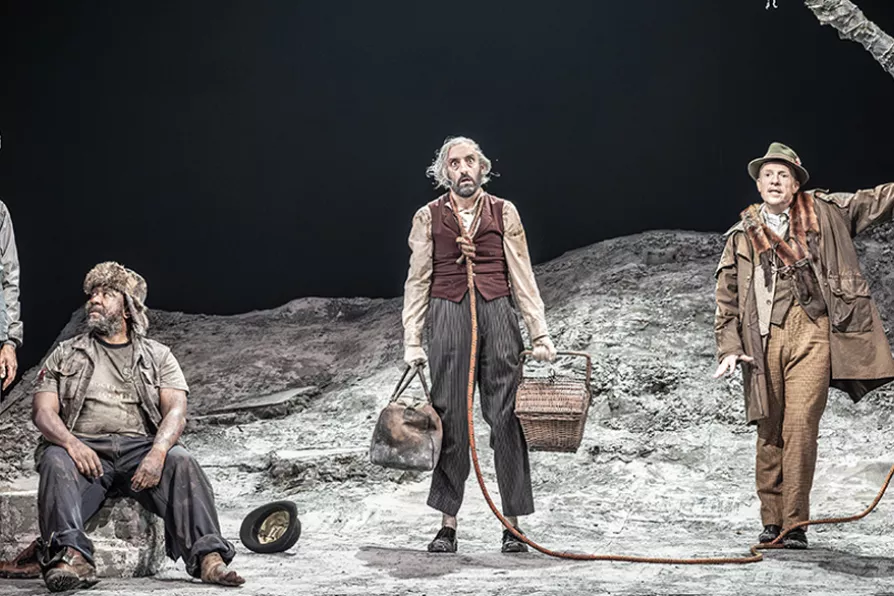ALAN McGUIRE welcomes the complete poems of Seamus Heaney for the unmistakeable memory of colonialism that they carry
While the others suffered
LYNNE WALSH is spell-bound by a production of Beckett’s classic that weaves the big themes of alienation into the warp and weft of humour and friendship

 POST-TRAUMA SCENARIO: Ben Whishaw (Vladimir), Lucian Msamat Estragon)i. Tom Edden (Lucky) and Jonathan Slinger (Pozzo) in Waiting for Godot
[Marc Brenner]
POST-TRAUMA SCENARIO: Ben Whishaw (Vladimir), Lucian Msamat Estragon)i. Tom Edden (Lucky) and Jonathan Slinger (Pozzo) in Waiting for Godot
[Marc Brenner]
Waiting for Godot
Theatre Royal Haymarket, London
IS this really a play in which nothing happens — twice, as so many critics have claimed?
Is it all nihilistic gloom, or is there a tale of comradeship against the odds?
Similar stories

MARY CONWAY applauds the success of Beth Steel’s bitter-sweet state-of-the-nation play

WILL STONE foresees the refashioning of Beckett’s study of bitter nostalgia given the plethora of self-recording we make in the digital age

A uncomfortably misogynistic authorial voice that sometimes seems to lack insight troubles FIONA O’CONNOR

MARY CONWAY is disappointed by a play about AI that results in a deadening disconnect for its audience










